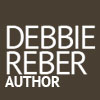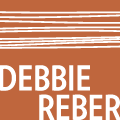 Because there are so many potential obstacles to completing a nonfiction book — doubt, writer’s block, and getting lost along the way being three of the biggest—I do everything in my power to ensure I can push through whatever comes up and reach my goal. That’s the main reason why I put a lot of effort into my pre-writing—when those obstacles arise, I’ve got my research, evidence, and plan to keep me going.
Because there are so many potential obstacles to completing a nonfiction book — doubt, writer’s block, and getting lost along the way being three of the biggest—I do everything in my power to ensure I can push through whatever comes up and reach my goal. That’s the main reason why I put a lot of effort into my pre-writing—when those obstacles arise, I’ve got my research, evidence, and plan to keep me going.
While I’ve written about the importance of getting clear on your personal why for your book—your stake in the ground, your highest hopes, etc.—this post is about articulating what you bring to the table that uniquely positions you to write this book.
I consider this in two different ways:
- Perspective
- Expertise
PERSPECTIVE
When I talk about getting clarity around your perspective, I’m referring to the personal lens through which you’re approaching your subject matter. In other words, what personal experience and history do you bring to your book that shapes your vision?
For example, if you remember the controversial parenting memoir Battle Hymn of the Tiger Mother, it’s author Amy Chua’s perspective as someone who was reared by parents subscribing to a distinct Old World parenting philosophy that helps this book work so well.
Similarly, one of the hooks of my book Run for Your Life: A Book for Beginning Women Runners was that I was writing it from the perspective of an “everyday woman runner.” I wasn’t an expert, but I was a long-time, knowledgeable woman runner with a passion for engaging more women in the sport.
EXPERTISE
When I say to be ready to articulate your expertise, I’m referring to exploring the ways in which you could be considered an expert or authority in the subject matter you’re writing about (if applicable). Spend time getting clear on the professional or academic experience you’ve accumulated that makes you uniquely qualified to write your book.
For example, Pamela Slim, author of Escape from Cubicle Nation and Body of Work, not only has a unique perspective she brings to the table—she also has the experience as an entrepreneur who’s spent the past eighteen years working with executives, managers, and employees at companies like Hewlett-Packard, Charles Schwab and Cisco Systems, as well as helping hundreds of people launch successful businesses. She’s is frequently quoted in media like The New York Times, The Wall Street Journal, BusinessWeek, and Forbes, and she’s given a powerful Tedx talk. All of this contributes to her status as an expert.
So, now you might be wondering why it’s so important to flesh out your own perspective and expertise as it relates to your book?
I do this for two (important) reasons:
- To fend off DOUBT. Doubt is a common, unwanted writing companion of many-a-writer, and if left unchecked, has the potential to lead to a long, ugly death of a work-in-progress. Taking the time to write out why you are the perfect, most qualified person to write your book is excellent ammunition against such doubt. I recommend reminding yourself of your unique POV as often as necessary.
- Selling the book. If you’re going to be writing a book proposal to try and secure an agent and/or sell your book to a traditional publisher, you’ll need to be able to sell yourself as the perfect author for the project. When a publisher buys a book, it’s because they believe in the author’s ability to write the book as promised. Answering these questions now will help you confidently pen your proposal later.
And with this post comes the end of the development stage of the book writing process. It’s time to start getting ready to write, which means time to start thinking OUTLINE. Stay tuned…

